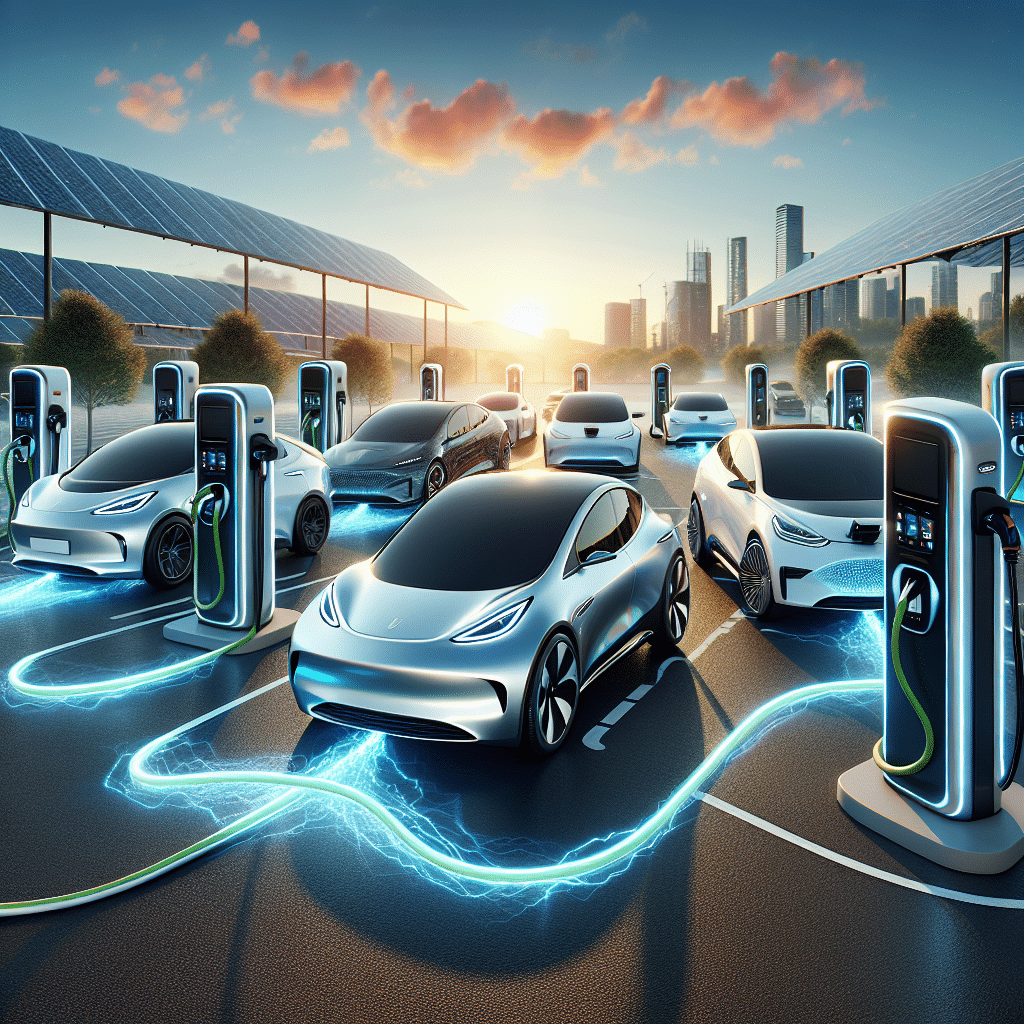Understanding Smart Charging Solutions for Electric Vehicles
Electric vehicles (EVs) have surged in popularity, prompting the need for intelligent charging solutions that maximize efficiency and convenience. Smart charging technologies play a critical role in supporting the growing demand for EV infrastructure while addressing grid limitations and enhancing user experience.
What Is Smart Charging?
Smart charging refers to the use of technology to optimize the charging process of electric vehicles. This includes managing when and how vehicles charge by utilizing data from the car, the grid, and user preferences. The goal is to minimize costs, reduce energy consumption during peak hours, and increase the integration of renewable energy sources into the grid.
Key Features of Smart Charging Solutions
-
Load Management: Smart charging systems can manage the load on the electrical grid by distributing charging sessions according to peak and off-peak hours. This mitigates strain during high-demand periods, ensuring stability.
-
Dynamic Pricing: Many smart chargers offer dynamic pricing based on electricity demand and availability. Users can schedule their charging sessions when electricity rates are lower, significantly reducing overall costs.
-
Real-Time Monitoring: Smart charging solutions allow users to monitor charging progress in real-time through mobile apps, providing insights into energy consumption and costs.
-
Integration with Renewable Energy: Smart chargers can be programmed to utilize energy generated from renewable sources, such as solar or wind, promoting sustainability and reducing the carbon footprint.
-
Vehicle-to-Grid (V2G) Technology: This innovative feature allows EVs to discharge energy back into the grid when demand is high, providing additional revenue streams for users and supporting grid stability.
Benefits of Smart Charging
-
Cost Efficiency: Smart charging solutions help users save money on energy bills by optimizing charging times based on electricity rates. Users can charge their vehicles during off-peak hours, taking advantage of lower rates.
-
Sustainability: By facilitating the use of renewable energy for charging, smart solutions aid in reducing greenhouse gas emissions and reliance on fossil fuels, contributing to a cleaner environment.
-
Increased Convenience: Users can conveniently schedule their charging sessions remotely via applications, ensuring that their vehicles are charged when needed without requiring constant manual monitoring.
Types of Smart Charging Solutions
-
Home Charging Stations: These are residential charging solutions equipped with smart technology that allows homeowners to control charging schedules based on pricing and energy availability.
-
Public Charging Stations: Many municipalities and businesses are deploying smart public charging stations that offer real-time data, payment options, and V2G capabilities.
-
Fleet Charging Solutions: Commercial fleets benefit from smart charging technology by optimizing charging schedules for multiple vehicles, potentially integrating with renewable energy sources for cost savings.
Challenges Faced by Smart Charging Solutions
-
Infrastructure Limitations: In many regions, the current electrical infrastructure may not support the widespread deployment of smart charging solutions without significant upgrades.
-
Data Privacy Concerns: As smart chargers gather personal usage data, there are growing concerns about privacy and how this information is stored and utilized.
-
Regulatory Barriers: Different regulations and policies can hinder the implementation and scaling of smart charging solutions across various territories.
Future Trends in Smart Charging Solutions
-
Increased Adoption of V2G: As technology advances, the ability for EVs to interact with the grid will play a more significant role, allowing vehicles not just to consume power but also to supply it back during peak demand.
-
AI-Driven Charging: Artificial intelligence will enhance smart charging solutions by predicting energy usage patterns, optimizing charging schedules further, and providing personalized user experiences.
-
Integration with Smart Homes: Smart chargers will increasingly integrate with home energy management systems, allowing users to optimize energy consumption across multiple devices within their homes.
-
Expansion of Charging Networks: The expansion of global EV charging networks will include an increased focus on smart charging solutions, ensuring users can reliably access optimized charging options anywhere.
Considerations for Users
-
Choosing the Right Smart Charger: When selecting a smart charging solution, users should consider compatibility with their EV, the features offered, and the value provided in terms of cost savings and convenience.
-
Understanding Local Electricity Rates: Users must stay informed about local electricity rates, as these can significantly affect the cost-effectiveness of their charging strategies.
-
Participating in Incentive Programs: Many states and local governments offer incentives for adopting smart charging technology, including rebates and tax credits that can offset the initial investment costs.
Conclusion
The evolution of smart charging solutions is vital for the future of electric mobility and the sustainability of energy consumption. By leveraging these advanced technologies, EV owners can enjoy increased convenience, cost savings, and contribute to a greener planet. As smart charging solutions become more widespread, the landscape of transportation will undoubtedly shift toward more sustainable and efficient practices.
